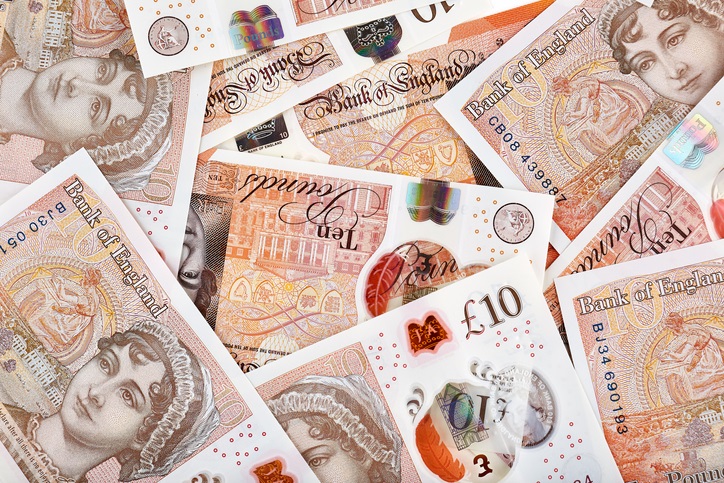Access to cash protected under new government plans
There’s good news here for anyone worried about the future of cash and access to it.
15th October 2020 10:48
by Laura Miller from interactive investor
There’s good news here for anyone worried about the future of cash and access to it.

Consumers who prefer to use cash in a world increasingly reliant on credit and debit cards have been buoyed with new plans to continue easy access to hard currency.
Under government proposals, cashback would be offered at shops without consumers having to make a purchase. Currently, customers usually have to buy something in store to get cashback.
The intention is to make easy access cashback widely available from retailers of all sizes in local communities across the UK.
Although cash use is declining, with people increasingly choosing to pay using cards, mobile and e-wallets, it remains crucial for groups across the UK, including the elderly and vulnerable.
According to regulator the Financial Conduct Authority’s (FCA) 2020 Financial Lives Survey, 11% of people rely on cash to a ‘great’ extent. Among vulnerable people, this rises to 16%.
Money deposited at Post Office branches topped £2 billion last month for the first time this year, as cash usage continued to recover despite being discouraged to avoid spreading the coronavirus.
Many people also find that cash is more accessible than digital payments methods or that it helps them to budget and manage their finances.
More than 80% of us pay for something using cash each week, the FCA survey found, and 80% of the cash we use is withdrawn from ATMs, 6% in branches and 2% is cashback.
But with banks increasingly closing local high street branches, people who prefer or rely on using cash have found it more and more difficult to access money.
As a result, the government has intervened to protect the future of cash. Under the plans outlined today, the FCA would also be given overall responsibility for the country’s retail cash system, to protect consumers and small businesses who rely on it.
John Glen, economic secretary to the Treasury, said: “We know that cash is still really important for consumers and businesses – that’s why we promised to legislate to protect access for everyone who needs it.
“We want to harness the same creative thinking that has driven innovation in digital payments to maintain the UK’s cash system and make sure people can easily access cash in their local area.”
Today the government is seeking views on cashback without the need for a purchase from consumer organisations, businesses, financial institutions, providers of ATM and payment services and others, through a call for evidence that will last for six weeks.
The plan is to increase an alternative to forcing banks to keep unprofitable branches open.
When local shops accept and dispense cash, it is recycled through local communities and there is less need to transport and distribute notes and coins via cash centres, which reduces the associated costs.
Last year, consumers received £3.8 billion of cashback when paying for items at a till – making it the second most used method for withdrawing cash in the UK behind ATMs, according to government figures.
These articles are provided for information purposes only. Occasionally, an opinion about whether to buy or sell a specific investment may be provided by third parties. The content is not intended to be a personal recommendation to buy or sell any financial instrument or product, or to adopt any investment strategy as it is not provided based on an assessment of your investing knowledge and experience, your financial situation or your investment objectives. The value of your investments, and the income derived from them, may go down as well as up. You may not get back all the money that you invest. The investments referred to in this article may not be suitable for all investors, and if in doubt, an investor should seek advice from a qualified investment adviser.
Full performance can be found on the company or index summary page on the interactive investor website. Simply click on the company's or index name highlighted in the article.